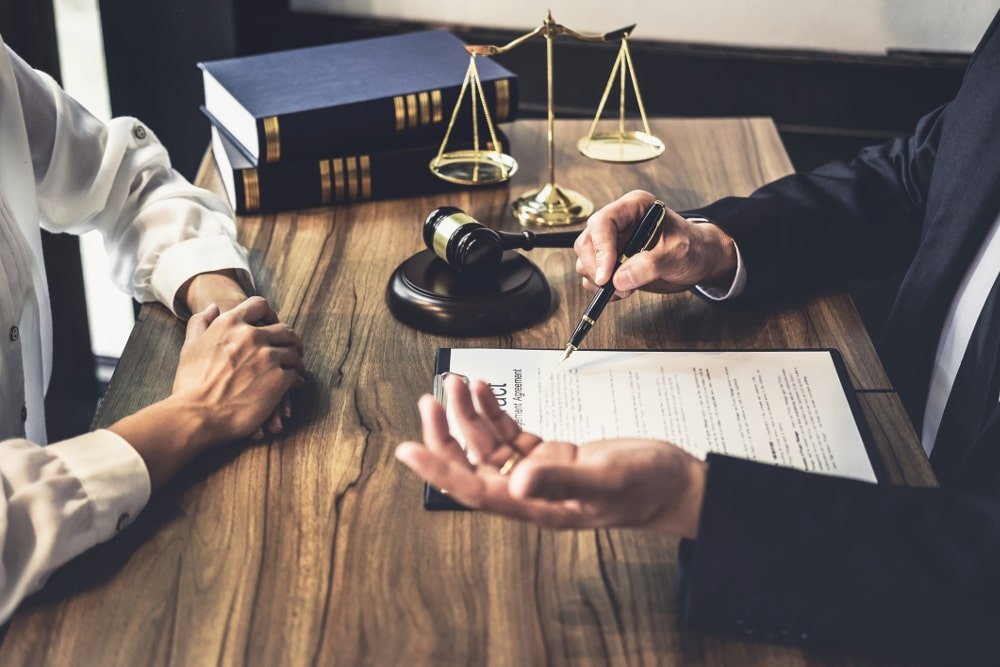Facing criminal charges is stressful enough, but for non-citizens living in Florida, the consequences can stretch far beyond jail time or fines. A criminal conviction can put your immigration status at risk, threaten your ability to stay in the United States, or even lead to removal (deportation). Whether you’re a green card holder, someone with a pending asylum application, or living without legal status, it’s essential to understand how the criminal justice system intersects with immigration law, because one wrong move can quickly turn a criminal case into an immigration crisis. This article explores how criminal charges can impact immigrants in Florida, the types of offenses that often raise red flags, and the steps you can take to protect both your freedom and your future. If you’re in or near Fort Pierce, Florida, the right legal help could be closer than you think.

Experienced Criminal Defense Lawyer
📍 130 S Indian River Dr, Suite 202, Office 218, Fort Pierce, FL 34950
📞 (772) 828-1143
📧 info@jordizaragoza.com
The Intersection of Criminal and Immigration Law
Criminal and immigration law are two separate systems, but they collide often. Immigration law is federal, while most criminal charges are prosecuted under state law (like in Florida). However, U.S. immigration authorities review criminal records when determining someone’s eligibility to enter, remain, or become a citizen.
That means a conviction under Florida law can be used by federal immigration agencies like ICE (Immigration and Customs Enforcement) or USCIS (U.S. Citizenship and Immigration Services) to:
- Deny a green card
- Deny naturalization
- Revoke lawful permanent resident (LPR) status.
- Initiate deportation (removal) proceedings
- Deny re-entry after travel
Even if a charge seems “minor” in a criminal court, it may carry serious consequences under immigration law.
Types of Crimes That Can Affect Immigration Status
Not all criminal charges trigger immigration consequences, but certain categories are especially dangerous for non-citizens.
1. Crimes of Moral Turpitude (CMTs)
These are crimes that suggest dishonesty, fraud, or depravity. Common examples include:
- Theft
- Assault with intent to harm
- Domestic violence
- Fraud
- Drug possession with intent to distribute
One CMT may not lead to deportation, but two or more convictions—or one within five years of entering the U.S.—can.
2. Aggravated Felonies
Despite the term “felony,” this category doesn’t always match what Florida defines as a felony. Under immigration law, an aggravated felony includes:
- Drug trafficking
- Firearms offenses
- Sexual abuse of a minor
- Fraud involving more than $10,000
- Burglary
- Rape or murder
Conviction for an aggravated felony often leads to mandatory deportation and bars you from many forms of relief.
3. Controlled Substance Offenses
Even a simple possession charge, like marijuana, can affect your immigration status. Drug-related offenses are taken very seriously in immigration court.
4. Domestic Violence and Restraining Order Violations
Domestic-related convictions, including threats or battery, can lead to deportation—even if you’re a legal resident. Violations of protection orders can also trigger removal.
Immigration Consequences Without a Conviction
A surprising fact: you don’t always need to be convicted to face immigration consequences.
- Arrests may be considered by immigration officials.
- Admitting to committing a crime (even without conviction) can impact visa or green card eligibility.
- Plea deals may still be viewed as convictions for immigration purposes.
That’s why it’s important to avoid saying or doing anything, even during an arrest, that can later be used in immigration proceedings.
How a Criminal Defense Lawyer Helps in These Situations
When criminal charges could affect your immigration status, it’s not enough to have just a criminal defense lawyer or just an immigration lawyer—you need someone who understands how the two systems interact.
An experienced criminal defense lawyer will:
- Evaluate your immigration risk before recommending plea deals or trial strategies
- Work with immigration attorneys (if needed) to coordinate a legal defense
- Fight to reduce charges or have them dismissed
- Pursue resolutions that minimize immigration consequences, like pre-trial diversion or sealed records
This strategic defense can help protect not only your immediate freedom but your ability to remain in the United States with your family and livelihood intact.
What to Do If You’re Arrested in Florida and You’re Not a U.S. Citizen
If you or someone you love is a non-citizen and facing criminal charges in Florida, here are the steps to take immediately:
- Do not speak to police without a lawyer present.
- Do not admit guilt or accept any plea deal without understanding the immigration consequences.
- Ask if ICE has been contacted, especially if you’re being held in jail.
- Contact a criminal defense lawyer who understands immigration risks.
- Gather your immigration documents, such as visas, green cards, or pending applications.
- Inform your defense attorney of your immigration status immediately.
What About DACA Recipients or Asylum Seekers?
Criminal charges can also endanger people with pending or temporary protections:
- DACA recipients can lose status due to certain misdemeanor convictions.
- Asylum applicants may have their applications denied if accused of certain crimes.
- People in deportation proceedings may lose eligibility for cancellation of removal if convicted.
In other words, even one charge, if not handled correctly, can result in major immigration consequences.

When to Seek Help
Immigration-related criminal defense is time-sensitive. The earlier you get a lawyer involved, the better your chances of protecting your rights and avoiding removal.
If you or a loved one has been arrested in the Fort Pierce, Florida area, don’t wait.
CONTACT TODAY
📍 130 S Indian River Dr, Suite 202, Office 218, Fort Pierce, FL 34950
📞 (772) 828-1143
📧 info@jordizaragoza.com
Consulting an experienced attorney may be the most important step in safeguarding your future.
